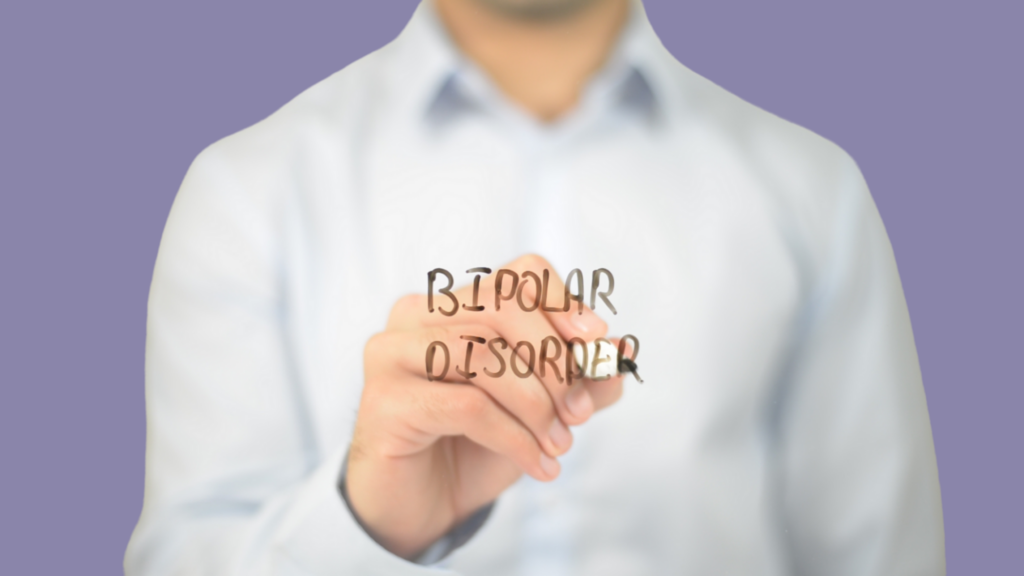
The misuse and overuse of mental health terms is rampant in today’s pop culture. You’ll see and hear it all over social media, in songs, and in daily interactions. It’s become common to hear someone refer to their need for cleanliness and organization as “their OCD” – maybe not realizing there is more to that diagnosis than just neatness. Or how their ex is “such a narcissist” when they may just be selfish and not into them. Here’s another one: “Wow, you’re so bipolar!” Ok – yes, going from one extreme to another may qualify as a challenging trait, but it can be hurtful to someone who truly suffers from bipolar disorder. The depression and mania that accompany the condition aren’t taken lightly by those who suffer from it directly or indirectly. Yet so many people use it as an insult to others who don’t behave the way they want them to.
Maybe you’ve even used some of these terms yourself because they get your point across in a way others are used to hearing in today’s world. Perhaps it would be more acceptable to say someone has tendencies of a certain trait or condition instead of labeling them as such. Regardless, speaking out of turn with limited facts to support a claim is usually not nice, even to yourself.
One of the most common mislabeling is the term “adult ADHD.” While this condition is real, it’s often casually tossed around, especially among women experiencing hormonal changes. But is it truly ADHD or something else?
In this article, we’ll explore the rise of “adult ADHD,” its overuse, and the importance of getting a proper diagnosis. We’ll break down what ADHD is, what symptoms to look for, and how to distinguish it from other conditions that may share similar symptoms.

What is ADHD, really?
Attention-deficit/hyperactivity disorder (ADHD) is a medical condition often diagnosed in childhood. However, many individuals are not diagnosed until adulthood, especially if their symptoms weren’t clearly identified earlier. ADHD affects attention, impulsivity, and executive function. Common signs in adults include:
- Difficulty focusing or staying on task
- Impulsivity in decision-making or actions
- Disorganization in personal and work life
- Memory challenges
- Hyperactivity or restlessness (though this can be less noticeable in adults)
However, just because someone struggles with forgetfulness, feels overwhelmed, or has trouble keeping up with the demands of daily life doesn’t automatically mean they have ADHD. Several other conditions and life factors can mimic the symptoms of ADHD, and that’s where things can get tricky.
ADHD is classified into three types:
Inattentive: Difficulty paying attention, focusing, listening, or waiting
Hyperactive: Having too much energy, moving around too much, or talking too much
Combined: Demonstrating six or more symptoms of inattention and six or more symptoms of hyperactivity.
Other symptoms include extreme restlessness, impulsivity, interrupting others, disorganization, and poor time management skills.
The Rise of “Adult ADHD” and Its Possible Overuse
While ADHD is a legitimate condition, the term “adult ADHD” has become somewhat of a catch-all phrase. It’s thrown around when someone feels scatterbrained, disorganized, or emotionally overwhelmed. Women, in particular, may use it when experiencing symptoms like forgetfulness and emotional overwhelm. But how often is it truly ADHD, and how often is it something else? To shed light on this, we spoke with providers at Geode Health who work with adults facing these challenges.
Understanding the Delayed Onset
As one of the most commonly diagnosed mental health disorders in children, ADHD is a chronic medical condition that affects brain development and activity, leading to differences in behavior and attention. Many people assume that a child will “grow out of” ADHD, but recent research suggests that this is not the case.
“In recent years, many more adults are diagnosed in adulthood or later in life for various reasons,” explains Christine Vinci, Therapist at Geode’s Elmhurst location. “Those with inattentive ADHD tend to get diagnosed in adulthood more often than those with hyperactive and impulsive or combination ADHD. Women and girls, who are the most understudied group in ADHD research, tend to get diagnosed as adults more so than men and boys. Females tend to show different symptoms than males. I also believe there tends to be more bias towards males in research due to social norms/expectations, while females tend to mask symptoms more than males typically will.”
Whether it’s ADHD or something else, it’s not uncommon for adults to struggle with similar symptoms as they get older. Either way, it’s essential to consider all the possible causes.
Women Experiencing an Onset of ADHD-like Symptoms
Adult women, especially those going through hormonal changes like perimenopause or menopause, are increasingly reporting ADHD-like symptoms. While ADHD doesn’t “develop” in adulthood, hormonal fluctuations can amplify symptoms or create confusion.
Estrogen plays a significant role in cognitive function, and as levels fluctuate during perimenopause, women often experience increased memory challenges and difficulty concentrating. These cognitive declines typically resolve by menopause.
A 2023 study published in the Journal of the International Neuropsychology Society, including over 3,100 survey responses, found that 61% of women with a diagnosis of ADHD reported their symptoms (poor memory and brain fog) had the most significant impact on their daily lives between the ages of 40-59 years of age. It’s clear that for many women, hormonal changes can mimic or amplify symptoms commonly associated with ADHD.
“As we explore why more women may be experiencing ADHD-like symptoms later in life, it’s important to remember that ADHD isn’t something that ‘develops’ in adulthood,” says Angela Sohn, Psychiatric Nurse Practitioner at Geode Health in Aurora, Illinois. “ADHD symptoms must have been present before age 12, even if they weren’t recognized or diagnosed until later. Hormonal changes, especially those that happen during perimenopause, can create confusion.”
There is evidence-based information on ADHD and perimenopause/menopause that helps explain why it’s showing up later in life. Understanding the connection between hormonal changes and cognitive symptoms can be enlightening for many women. “Exploring treatment options, including hormonal or cognitive behavioral therapy, can often provide relief. It’s important to approach these symptoms holistically and with guidance from a mental health professional,” adds Sohn.
Is It ADHD or Something Else?
ADHD symptoms overlap with several other mental health conditions. It’s essential to receive a thorough evaluation to determine the true cause of the symptoms. Here are some conditions that can resemble ADHD:
Anxiety disorders: Excessive worry or racing thoughts can impair focus and memory, making it challenging to stay on task.
Depression: Brain fog, difficulty concentrating, and low energy are frequent symptoms of depression.
Sleep disorders: Chronic sleep deprivation or conditions like sleep apnea can cause forgetfulness, irritability, and difficulty focusing.
Thyroid imbalances: Thyroid dysfunction can lead to cognitive issues such as forgetfulness, brain fog, and confusion, which can overlap with ADHD symptoms.
“Because there is so much overlap between symptoms of ADHD and other mental health conditions, it is often necessary to treat anxiety and mood disorders before being able to assess for ADHD accurately,” explains Rachel Brown, Psychiatric Physician Assistant at Geode Health’s West Town office. “When we consider ADHD, we must remember that its symptoms don’t just pop up overnight. There’s a pattern of behaviors that has been present since childhood. So, when an adult comes in with complaints of forgetfulness or disorganization, we first explore other potential causes before jumping to a diagnosis of ADHD. It’s always important to look at the whole picture.”
ADHD, being a lifelong neurological disorder, doesn’t suddenly appear in adulthood without a history of symptoms. That’s why it’s critical to consider other potential conditions contributing to the symptoms.
ADHD Rarely Stands Alone
ADHD rarely occurs alone. In fact, more than two-thirds of people with ADHD have one or more co-existing conditions, such as depression, anxiety, or autism spectrum disorder. It’s important to remember that ADHD is rarely the sole diagnosis. A thorough evaluation is needed to identify other contributing factors.
People with ADHD may also have physical health comorbidities, including sleep disorders, obesity, and asthma. Research has shown that individuals with ADHD tend to have a higher incidence of dental issues, but the key takeaway is that an ADHD diagnosis isn’t simple. It involves understanding the entire context of a person’s mental and physical health.
The Importance of a Proper Diagnosis
When it comes to diagnosing ADHD, the process should be thorough. A clinician will typically conduct a comprehensive assessment, including gathering a history of the individual’s symptoms, family history, and other relevant factors. It’s imperative to have an accurate diagnosis because the treatment for ADHD is different from the treatment for other conditions that may mimic its symptoms.
Vinci points out, “A proper diagnosis is critical because treatment strategies vary greatly. For instance, if someone is suffering from anxiety rather than ADHD, therapy or anxiety management strategies may be more effective than stimulant medications used to treat ADHD. It’s essential to explore all possibilities and not jump to conclusions based on vague or self-diagnosed terms like ‘adult ADHD.’”
ADHD can be diagnosed by a licensed mental health professional, physician, psychiatrist, or psychiatric prescriber. “Evaluating for ADHD is a complex process that requires a lot of detective work and problem-solving,” adds Vinci. “In addition to ruling out and evaluating for other mental health disorders.”
Providers may use psychological testing, screening tools, and other practices to assist in diagnosing someone who displays behaviors consistent with ADHD. At Geode Health, we emphasize a personalized approach to treatment. Whether it’s ADHD, anxiety, depression, or another issue entirely, we work with our patients to find the right solution.
Avoiding the Pitfalls of Labels
The next time you hear someone say they have “adult ADHD” or even find yourself describing your own struggles in those terms, it’s worth pausing to reflect. Are you genuinely experiencing ADHD, or is it something else at play? It’s important to recognize the complexity of mental health and avoid oversimplifying it with labels that may not be accurate.
If you’re struggling with symptoms that resemble ADHD or just feeling overwhelmed, it’s always a good idea to speak with a healthcare provider who can help you navigate your symptoms and determine the best course of action. At Geode Health, we offer personalized mental health care, and our providers are ready to help you understand what you’re experiencing.
The takeaway here is that ADHD is a real condition, but it’s often misused or misunderstood, especially when it comes to adults. It’s essential to get a proper diagnosis to avoid jumping to conclusions or using the term ADHD as a catch-all for other issues like stress or hormonal changes. Always seek professional guidance to better understand what’s going on with your mental health.
Geode Health has locations across Georgia, Illinois, North Carolina, Texas, and Wisconsin, making it easy to access expert mental health care wherever you are. Whether you’re looking for psychiatrists in Houston, Marietta, GA, or Madison, WI, our team is here to help you feel better, faster.
Schedule an appointment with a Geode provider today at book.geodehealth.com.


